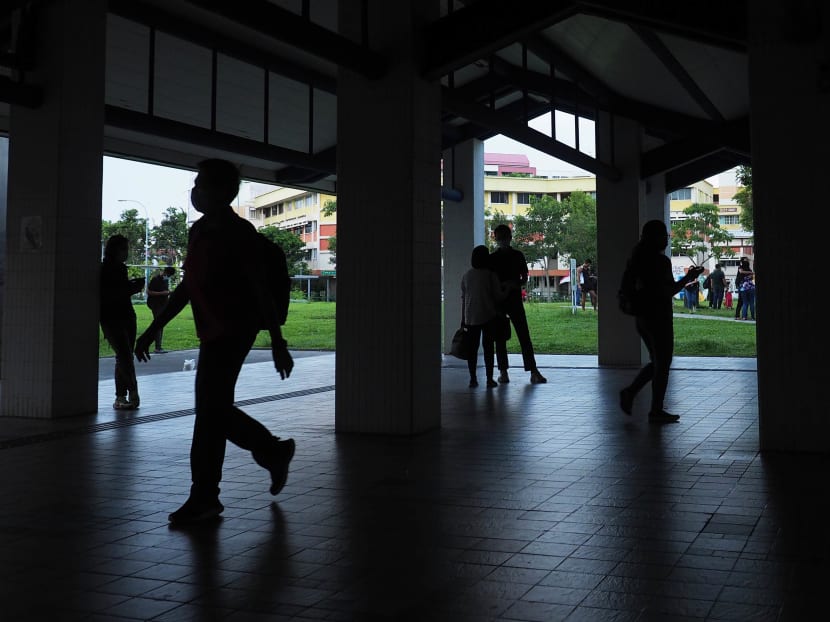National strategy to tackle mental health issues to be developed
SINGAPORE — A task force looking into mental wellness during the Covid-19 pandemic has recommended that a national strategy to improve mental health for the population be developed.
- Task force looking into mental wellness expanded to involve various agencies
- Agencies’ efforts in tackling mental health issues will be guided by a new national strategy
- HPB is setting up a national mental health portal with content curated by experts
- A national framework with common training standards for those who support people with mental health conditions will be set up
SINGAPORE — A task force looking into mental wellness during the Covid-19 pandemic has recommended that a national strategy to improve mental health for the population be developed.
The strategy will also guide and align the various agencies’ individual efforts.
This is among three recommendations put forward by the task force on Monday (Aug 23) to address gaps it has identified, having completed its review of the psychosocial impact of the pandemic on the population.
The task force was convened in October last year by the Ministry of Health (MOH) and the Institute of Mental Health (IMH).
In July, the task force was expanded into a new inter-agency outfit. This is to “move beyond providing mental health support for the population from Covid-19”, MOH said in a press release.
The new task force will be chaired by Senior Minister of State for Health Janil Puthucheary.
MOH has acted on the earlier task force’s findings and recommendations, and “enlarged the task force into an interagency platform to oversee the development of our national mental health and well-being strategy”, said Dr Janil.
The new task force, he said, will focus on “cross-cutting issues that require multi-agency and inter-agency collaborations”.
IMPACT OF COVID-19 ON THE POPULATION
In a survey to assess the Singapore population’s psychological responses and mental well-being during the pandemic, IMH found that about 13 per cent of respondents had experienced symptoms of depression or anxiety between May 2020 and June 2021.
The National Youth Council also found that mental well-being was a challenge for 52 per cent of youths polled in separate surveys.
The top stressors cited by youth were anxiety over the future (53 per cent), stress over finances (41 per cent), and worries about academic or work performance (39 per cent).
For older Singaporeans, a study by the Singapore Management University Centre for Research on Successful Ageing found that respondents reported a stark increase in feelings of isolation as the circuit breaker began in April last year.
MOH said research has shown that social isolation is often associated with negative mental health outcomes.
IMH’s mental health helpline also saw 50 per cent more callers in 2020 compared to 2019, with a peak seen in April last year.
The National Care Hotline, launched in April last year to provide support to those facing mental health concerns, handled over 45,000 calls as of end-May 2021, with the top concerns pertaining to the need for emotional support, mental-health-related issues and family-related or social matters.
NATIONAL STRATEGY
While various agencies play different roles in the mental health landscape, the task force found that there is currently no overarching strategy to align and track the progress of efforts.
The task force thus recommended the development of a national strategy to guide and align the various agencies’ individual efforts.
The Government will engage the public on the development of this strategy through a public consultation to be carried out next year, MOH said.
NATIONAL MENTAL HEALTH PORTAL
The task force also found that while there are numerous online resources on mental health, it can be confusing and overwhelming for those who are searching for information.
There are also concerns with the currency, legitimacy and credibility of the information found on numerous online resources, the task force added.
To tackle this, the Health Promotion Board (HPB) is developing a national portal for mental-health-related content curated by experts.
The task force said that HPB is planning to roll out the pilot version of the portal in the later part of this year.
NATIONAL COMPETENCY TRAINING FRAMEWORK
The task force also recommended setting up a national mental health competency framework, with a common set of training standards and clearly defined degrees of competencies expected of those who support people with mental health conditions.
MOH said that agencies which provide mental health training have begun to map out their training programmes according to the proposed framework.












